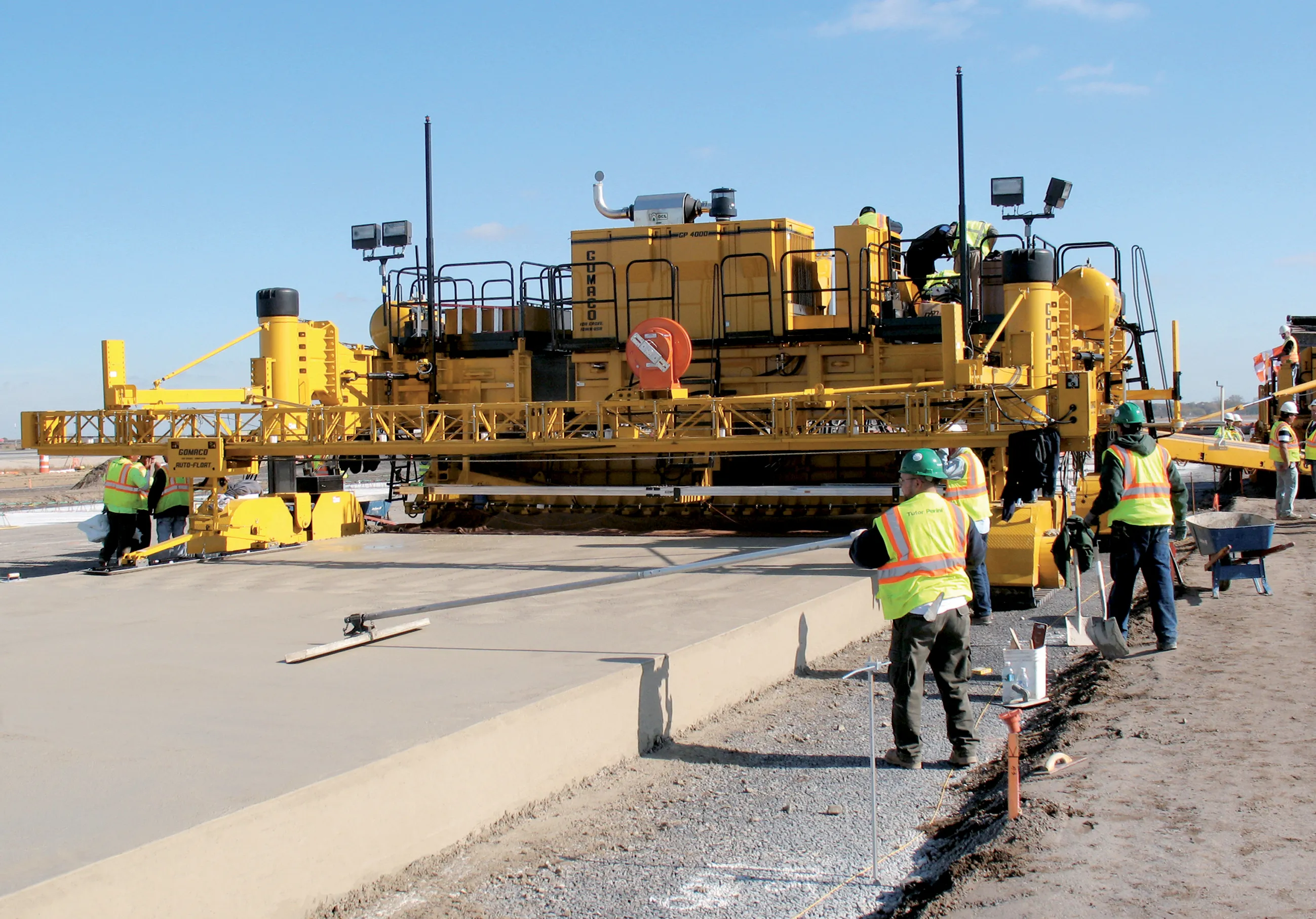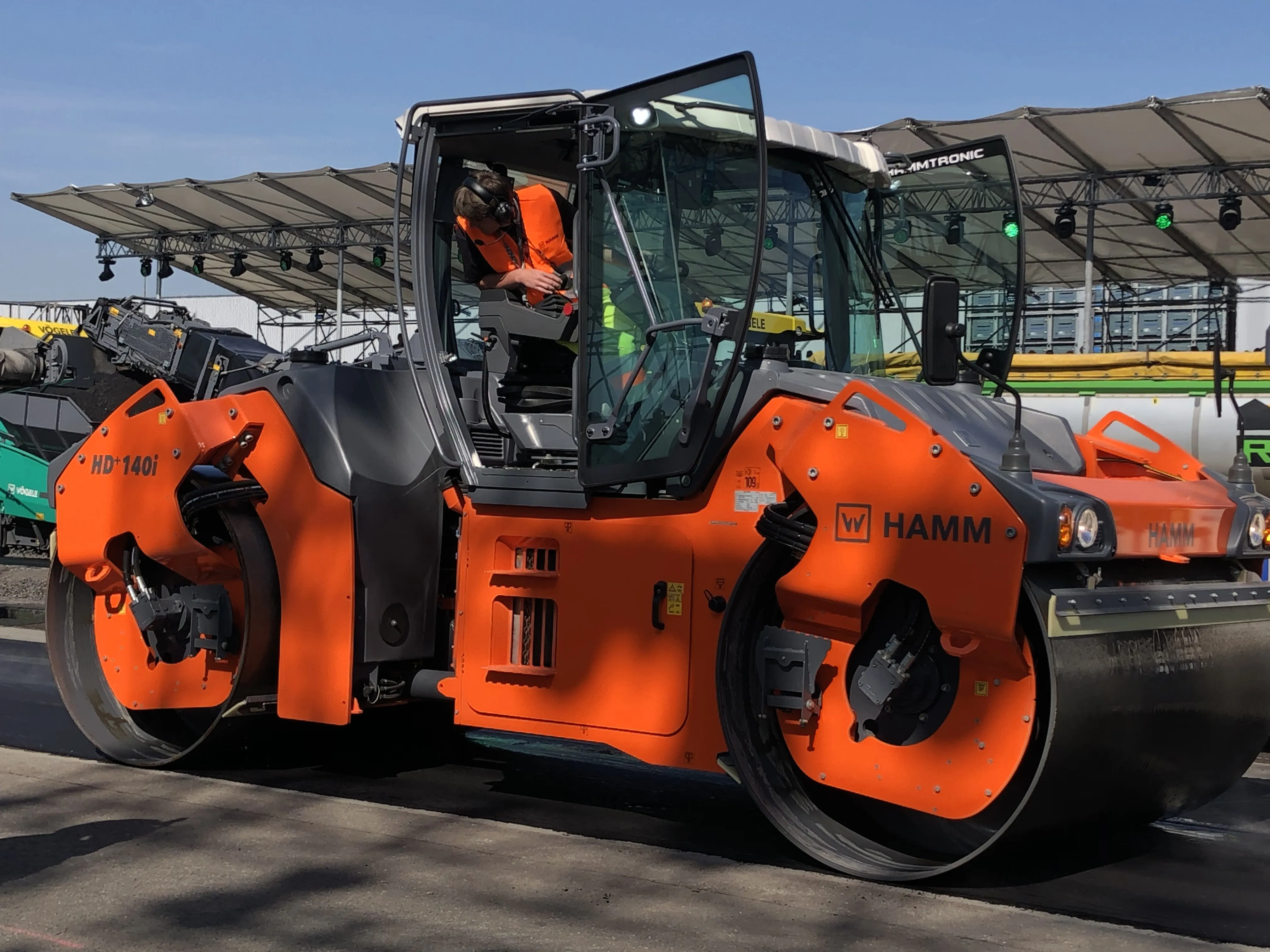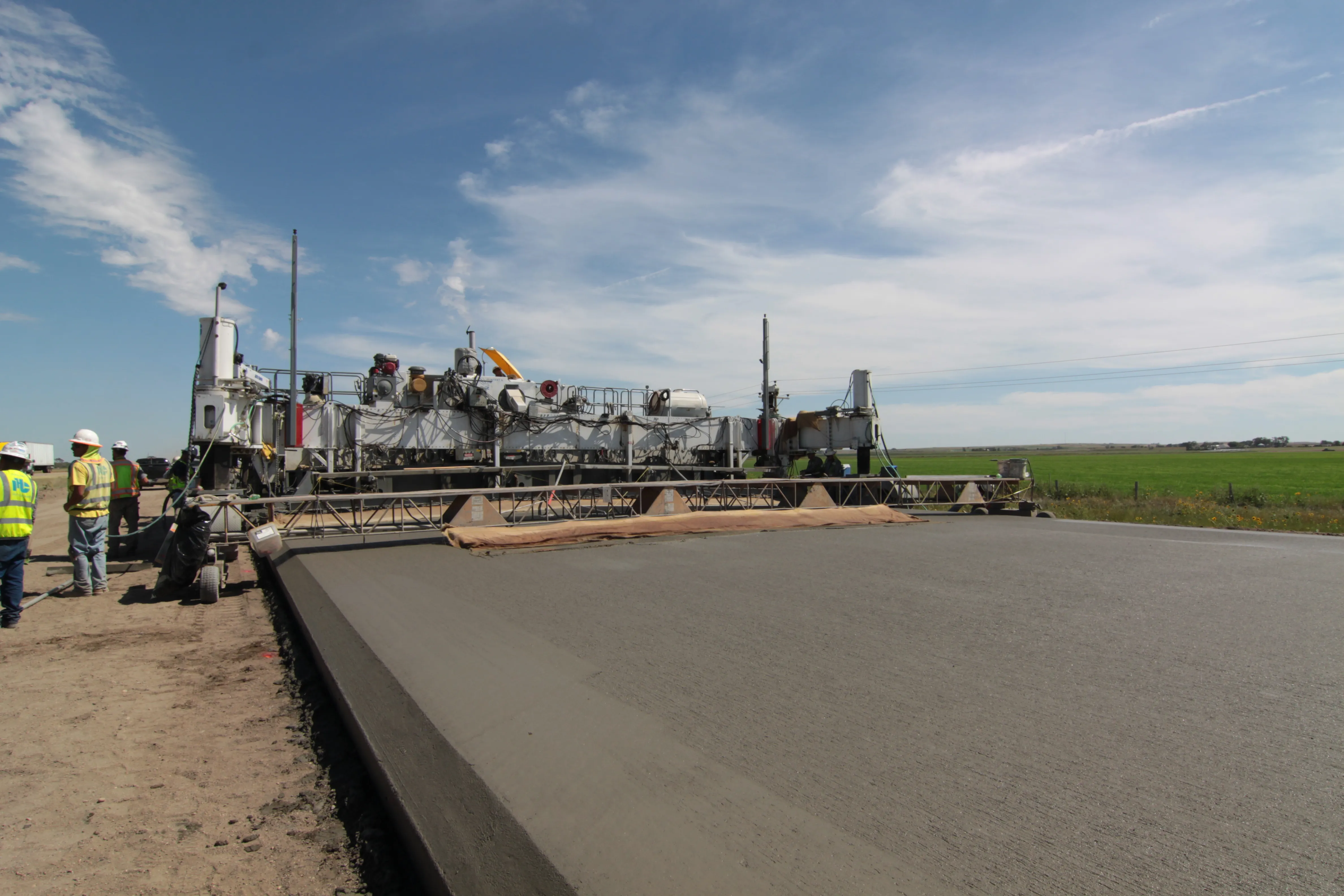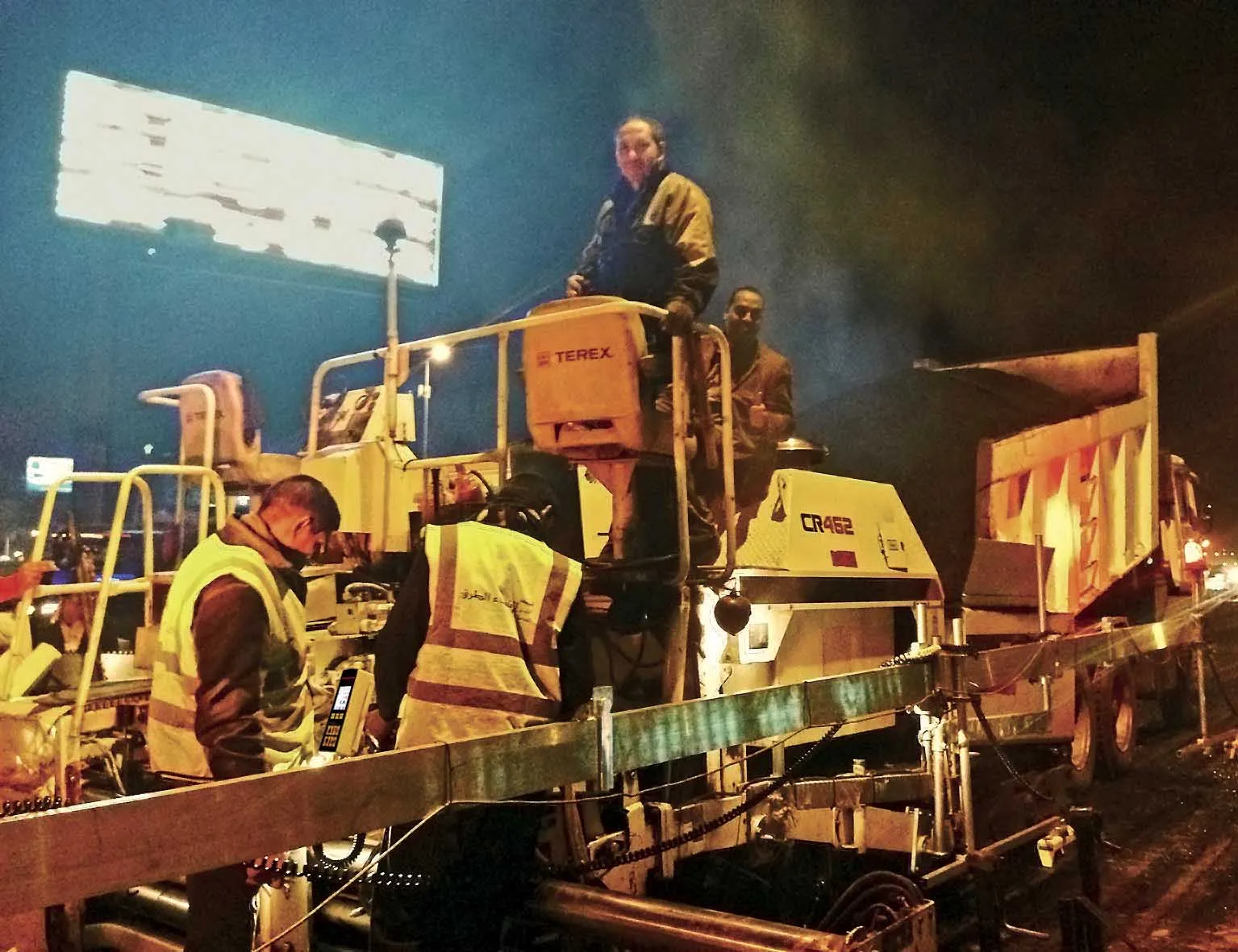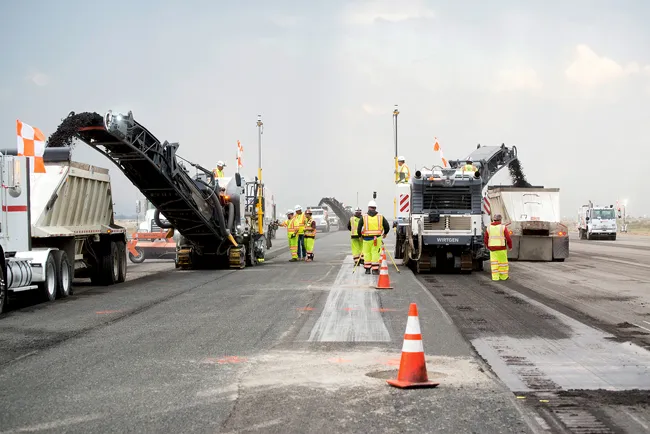
Milling subcontractor Pavement Recycling Systems removed thousands of tonnes of reclaimed asphalt pavement (RAP) from a runway at Oakland International Airport in California recently. The firm used a fleet of six
In total, 47,000tons of asphalt were milled within a 60-hour time frame, nonstop day and night, plus a single-shift second phase a week later. The firm started milling at 6am on the Monday and worked 12-hour shifts nonstop until about 3:30pm on the Wednesday according to Kurt Eddy, Operations Manager for Milling and Restructuring, for Pavement Recycling Systems.
Immediately after, the prime contractor DeSilva Gates Construction began paving. The short time slot was driven by substantial liquidated damages of over US$700,000/day, payable if the general contractor failed to open the runway on time. However, the paving work was also completed within the set time frame by DeSilva Gates Construction.
The general contractor kept some of the milled RAP on the airport property and used this to correct elevations of taxiways, building up a levee along the bay shoreline, as well as for other construction purposes. The cold milling machines, equipped with the optional wider milling drum, cut at a width of 2.2m, according to Terry Graves, Superintendent for PRS.
The contractor chose to use W 210i mills for the job due to its past experience with this model. The machine is powerful, productive and also versatile. A key feature is its innovative FCS system, which allows the user to switch cutting drums quickly. A contractor can select a drum with a particular tooth pattern to match either the specific finish requirements of an application or the grade of material being cut. The user can also fit different drum widths as required, of 1.5m, 2m or 2.2m. In addition, three adjustable milling drum rotation speeds allow for high milling outputs under changing demands.
According to the contractor, cutting to the digital models, and staying within the confines of all the different models, was one of the biggest challenges of this job. As a result, an important tool for the firm was Wirtgen’s LEVEL PRO levelling system. This package continually compares the actual milling depth with the preset target milling depth. LEVEL PRO can work with different sensors – cable, hydraulic cylinder, sonic and slope sensors or laser and sonic ski sensors as well as multiplex systems – and can be extended as required. 3D levelling is also possible with installed interfaces that are compatible with 3D systems from common manufacturers.
The total station system interfaced with Wirtgen’s LEVEL PRO system, which converted the signal to Wirtgen’s language and made the appropriate grade changes based on the currently required elevation. Accuracy of milling was within the close tolerances required.
The speed and the depth varied so the firm went from cutting zero in some areas to 280mm in other areas, depending on what the digital models required. In fact, there were five different models for the W 210i cold milling machines to work with. The firm said that there were benches of pavement remaining everywhere, at all different sizes, shapes and depths. Areas of distressed pavement were identified prior to the milling operation, and they were built into the digital models. There was a minimum requirement of asphalt to be removed for each.
The changes in models were marked using limit lines on the runway surface. Whenever the firm came up to another line painted on the pavement, it would have a model number which it changed in the settings. Essentially, PRS would mill at one depth to a limit line; stop and change the parameters to get to the new depth prescribed; then proceed to the next line, where the setting would have to be changed once again. String lines were painted all over the runway to identify the different tasks. The firm said it could not just start at one side of the runway and go across laterally. Instead, areas were specified for the models. Overlapping one risked running into the next. The problem with overlapping was that if the firm wandered off the area, it would be off-model and essentially off-grade.


